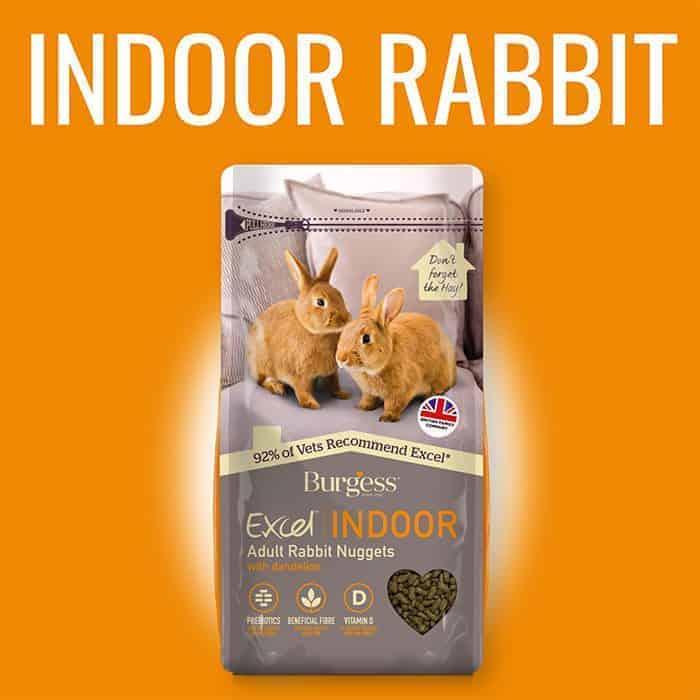
There are cat people and there are dog people – there are also rabbit people who open up their homes for free ranging bunnies to enjoy their life as house pets. As rabbits are clever, clean creatures who can be litter-trained, why not have bunnies as part of the family?
Having indoor rabbits means bunny-proofing your home. These chewy little pets will get their teeth into anything they can – furniture, curtains, electric cables, slippers, plants and practically anything else. So, when you’re not able to keep a very close eye on them, they’ll need to have a safe area to spend time in that’s equipped with cosy beds, hiding places, litter tray, safe toys to chew and plenty of good quality feeding hay to nibble on.
To coax your rabbits into their safe space, try some irresistible treats such as Excel Apple Snacks, which are perfect for hand feeding.
Meeting the nutritional challenge
When it comes to what to feed your indoor rabbits, there are some nutritional challenges to meet. Burgess in-house vet Dr Suzanne Moyes explains: “While indoor rabbits may roam the lounge rather than the great outdoors, they still need to get everything from their diet that a wild rabbit would. With this in mind, we’ve developed a food developed specifically for house rabbits.”
Excel Indoor Rabbit Nuggets is a food that’s based on beneficial ingredients bunnies would forage for in the wild. The specially formulated recipe includes:
- Yummy dandelion and nettle, which are great sources of vitamins and minerals that support all round health
- Prebiotics to help support the immune system and healthy gut bacteria
- 40% beneficial fibre – a balance of indigestible and digestible fibre, which is crucial in maintaining a healthy digestion
- Vitamin D to support healthy skin, teeth and bones
Even though rabbits can learn to love their humans, they need company of their own kind and should share their indoor home with at least one other bunny buddy.
Follow our feeding top tips
- Your rabbits’ diet should not be changed overnight. If you’re moving onto new food, do so gradually, mixing a little bit in at a time over a course of 10 days.
- All rabbit nuggets should be fed in small portions, as a supplement to a hay and grass-based diet. Follow the feeding guide on the back of the pack and adjust as necessary to keep your rabbits in a lean, active condition.
- 85-90% of your rabbits’ diet should be high quality feeding hay or grass to help wear down their continually growing teeth and to keep their gut moving to reduce the risk of digestive problems. Rabbits also need constant access to grass/hay to express their natural grazing behaviour.
- A handful of dark, leafy greens such as basic, broccoli, dark green cabbage and curly kale can be fed daily for additional nutrients and as a treat. Find more rabbit-safe vegetables and herbs here
- Clean, fresh water should be constantly available.
If you found this interesting, you may also like:
- Rabbits should eat a carrot a day and other bunny myths
- Bonding with your small pets
- Why It’s all about the hay
- Bonding new bunny buddies
Sources: rabbitwelfare.co.uk, pdsa.org.uk














